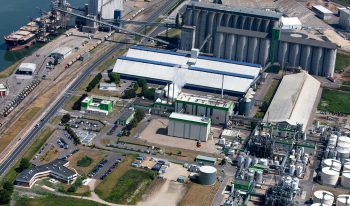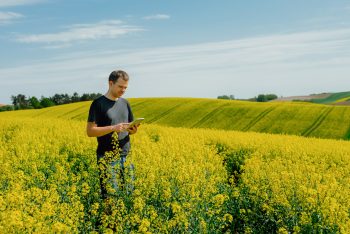During the Rencontres OleoPro event organised in Paris, Loïc Godnair, Saipol Sectors Manager, announced that an additional offer would be initiated to better remunerate for the high protein content in rapeseed seeds. This offer will be made as from the 2021-2022 campaign as part of the contracts and practices followed up by Saipol.

In concrete terms, producers will add up bonuses gained thanks to their practices that aim to limit GHG emissions, with the bonuses linked to practices that increase the protein rates in seeds.
Seed retailers already provide varieties based on criteria associating protein content and oil quality. Research is gathering speed. Varietal selection for oilseeds will create more value within the sector. The sector will also need to get organised, in particular to sort protein-rich seeds from standard seeds. Those adjustments shall eventually be financed by the market.
Additional protein points, freed agricultural areas
Moreover, oil made from those seeds with low GHG and high protein content will be valued by Saipol in the low-carbon energy market or through the Oleo100 biofuel. The fact that additional areas will not need to be used to produce those seeds is also a plus when addressing buyers. With a 38% or even a 40% protein concentration in rapeseed and sunflower oilcakes, compared to the current 34%, the animal nutrition sector might be able to cut the volume of imported soybeans by 1 to 2 Mt, thus freeing 350 to 700,000 ha in Brazil.



